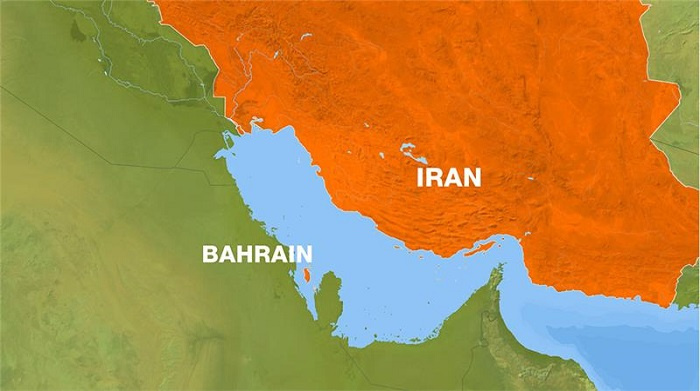When a Small Island Defies a Regional Power

Bahraini officials have declared that they found an ammunition storage facility along with an underground weapon arsenal in Nuwaidrat, a village close to Manama. Bahrain’s head of public security stated that both the storage and those arrested were tied to the IRGC. The Bahraini Interior Minister accused both Iran and Iraq and Bahrain’s Foreign Minister branded Iran again as a state seeking subversive policy in Bahrain “through sectarian tension to expand its leverage”.
Along this line, Bahrain named Mohammad-Reza Babai, an Iranian diplomat in Manama, and expelled him due to his alleged links to Bahraini opposition groups. Manama statesmen also reacted to Seyyed Hassan Nasrallah’s point on the Bahraini regime’s continuous pressure on Shiites. Earlier, Saudi Arabia claimed to have stopped an Iranian dhow that was allegedly carrying ammunition from Iran to Yemen in the Arabian Sea. Amid the rising tension between Iran and Saudi Arabia, not only Bahrain, but also the UAE joined the anti-Iran campaign.
Bahrain’s antagonist attitude towards Tehran had been intensified with the rise of popular movements in the country in February 2011. The movement was non-violent and was seeking legal-economic reform for ordinary lower class Bahrainis, especially the Shiites who were the majority of the Bahraini population. The government in Manama, however, imposed its ‘Iron Fist’ strategy and suppressed the movement with cruelty. According to human rights NGOs, the Bahraini government has so far arrested more than 3000 Shiites.
While reports made by independent commissions denied Iran’s ties with the Bahraini protestors, Manama has increased its enmity towards Tehran. This move is especially due to Bahrain’s alliance with the Saudis against Iran’s alleged rising influence in the region. Dominant Bahraini elites, mainly Sunni, are well aware that Iran’s influence on their small island was intensified with the Islamic Revolution in 1979. On top of that, Bahrain was the last part of Iran that gained independence in the early 70s. In other words, there have been extensive ethnic-religious ties between Iran and the majority of Bahraini people, who are Shiites. From this perspective, any uprising or tension on this small island has been framed by both Manama and other Arab regimes, especially the Saudis, as Iran’s intervention in the southern coast of the Persian Gulf. Phrased differently, Bahraini leaders have been trying to hide their inability to meet the needs of ordinary people, especially the Shiites, in Bahrain by blaming Iran.
Within this context, Bahraini leaders have been trying to intensify their ties with Riyadh to deter the Iran threat. This means that Bahraini policy towards Iran is highly determined by Riyadh, and not the geopolitical realities in the region.
Writing this analysis, one can argue that Bahrain’s recent reactions toward Iran are because of the Mina tragedy and the Saudi invasion of Yemen. In other words, Manama’s policy in expelling Iran’s diplomat stemmed from Riyadh’s influence on Bahrain. Amid framing Iran as a threat against the Arab Sheikhdom, it is part of an anti-Iran campaign.
This campaign was heavily emboldened after the Iran Deal. For the Arab Sheikhs, the deal could transform the power arrangement of the region in favor of Tehran. They know that any détente between Iran and the US would be an unprecedented existential threat for their reign. That is why they are framing Iran as a disruptive power in the region. That is why they seek to intensify enmity with Iran.

